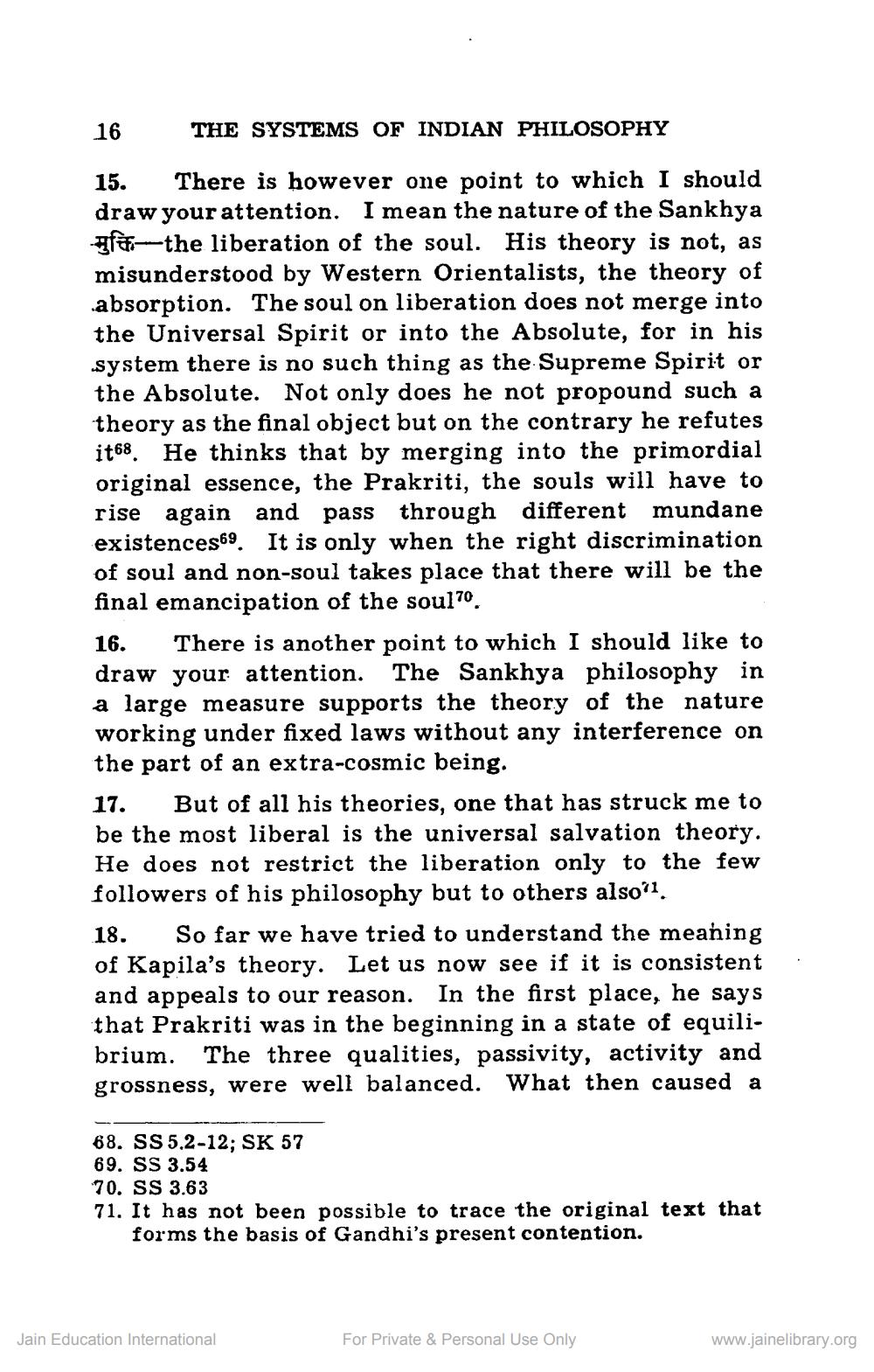________________
16
THE SYSTEMS OF INDIAN PHILOSOPHY
15. There is however one point to which I should draw your attention. I mean the nature of the Sankhya
the liberation of the soul. His theory is not, as misunderstood by Western Orientalists, the theory of absorption. The soul on liberation does not merge into the Universal Spirit or into the Absolute, for in his system there is no such thing as the Supreme Spirit or the Absolute. Not only does he not propound such a theory as the final object but on the contrary he refutes it68. He thinks that by merging into the primordial original essence, the Prakriti, the souls will have to rise again and pass through different mundane existences69. It is only when the right discrimination of soul and non-soul takes place that there will be the final emancipation of the soul. 16. There is another point to which I should like to draw your attention. The Sankhya philosophy in a large measure supports the theory of the nature working under fixed laws without any interference on the part of an extra-cosmic being. 17. But of all his theories, one that has struck me to be the most liberal is the universal salvation theory. He does not restrict the liberation only to the few followers of his philosophy but to others also'l. 18. So far we have tried to understand the meaning of Kapila's theory. Let us now see if it is consistent and appeals to our reason. In the first place, he says that Prakriti was in the beginning in a state of equilibrium. The three qualities, passivity, activity and grossness, were well balanced. What then caused a
68. SS 5.2-12; SK 57 69. SS 3.54 70. SS 3.63 1. It has not been possible to trace the original text that
forms the basis of Gandhi's present contention.
Jain Education International
For Private & Personal Use Only
www.jainelibrary.org




